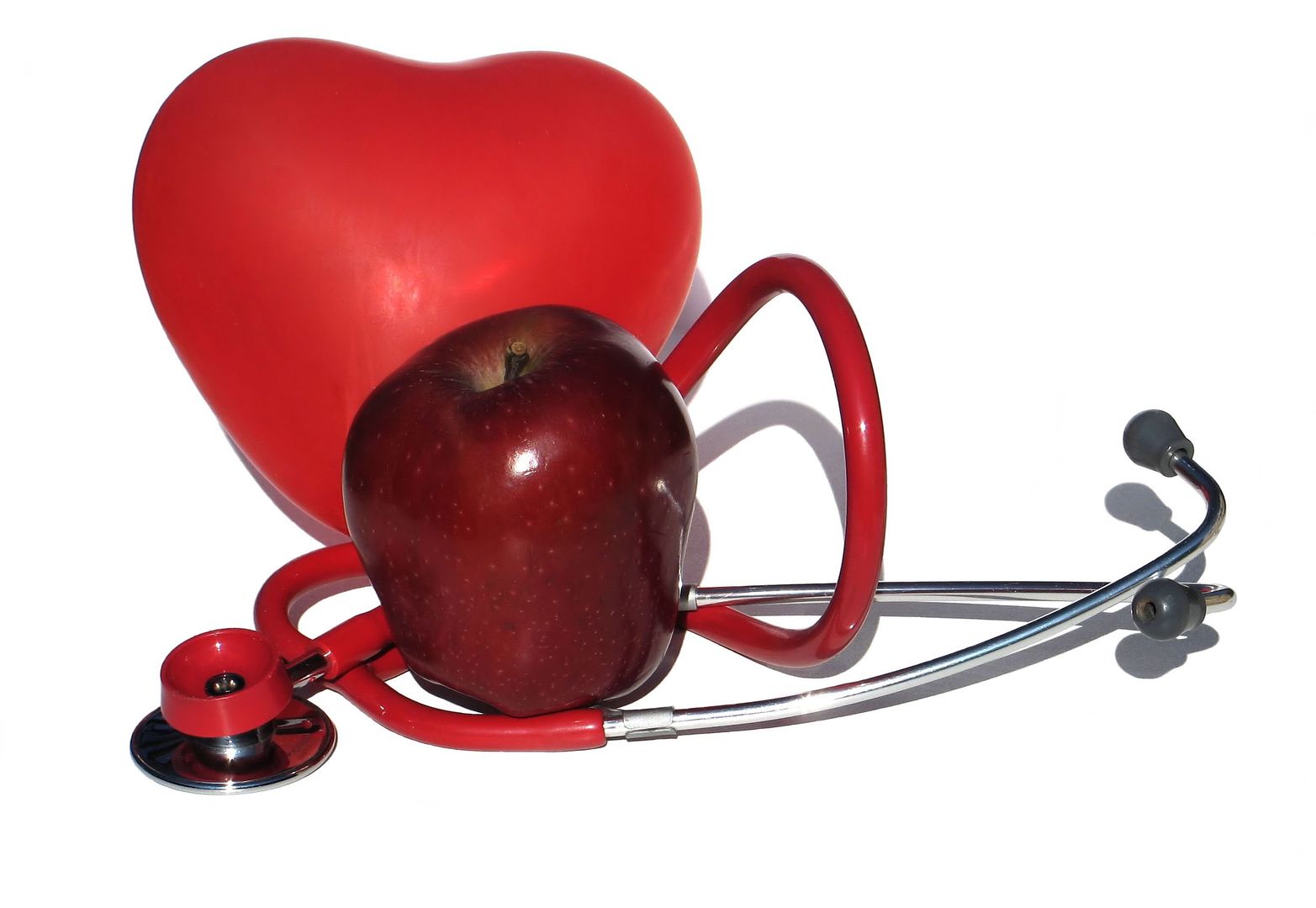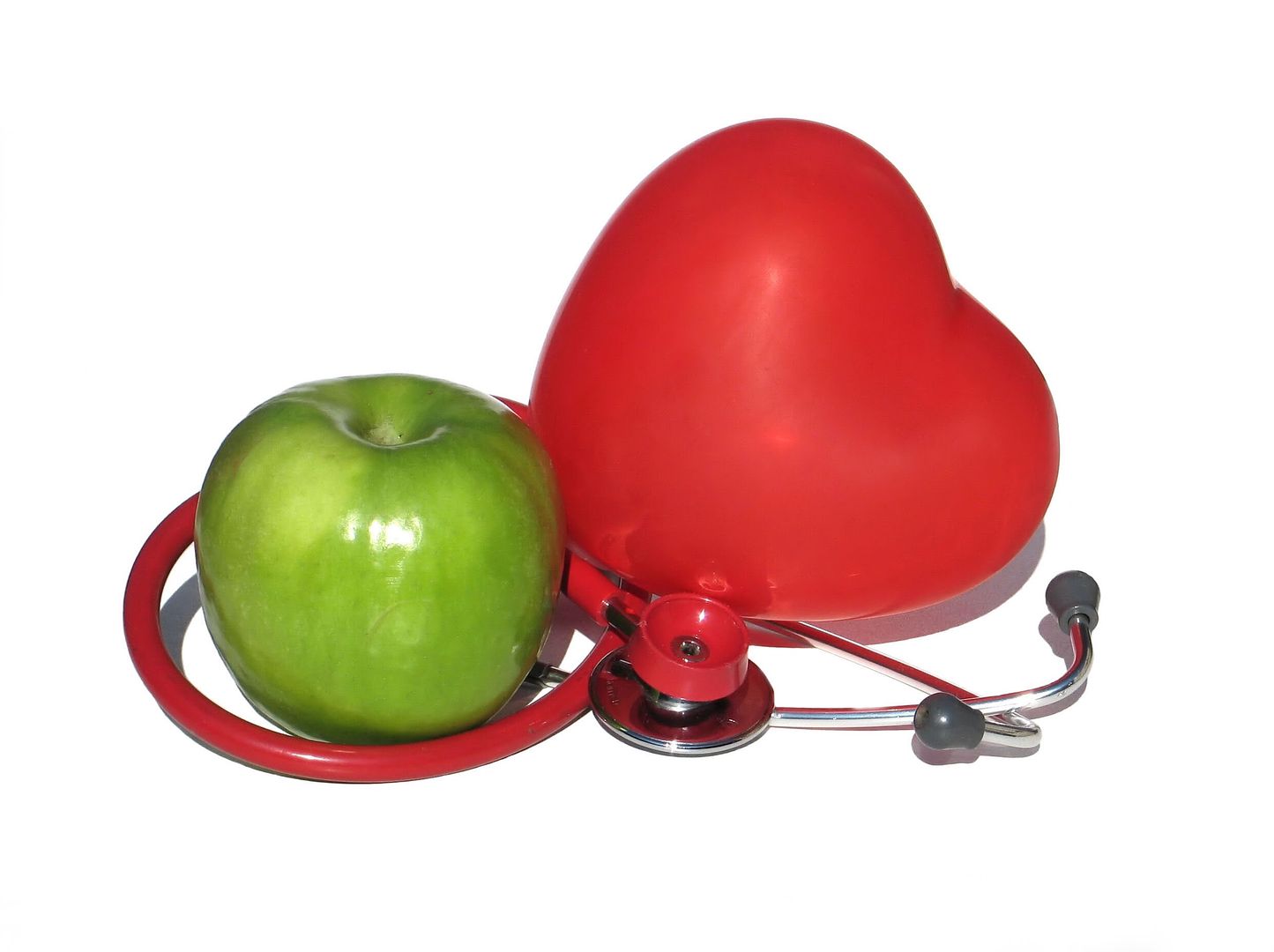Thursday, February 10, 2011
6 Heart Health Myths and Facts: Is Your Heart in Danger?
Broken Heart Syndrome (Stress Cardiomyopathy) Symptoms, Causes, Treatments
Wednesday, February 9, 2011
Fewer Strokes After Heart Bypass Surgery
WebMD Health News Reviewed by Laura J. Martin, MD
Sunday, December 14, 2008
Heart Disease and It's Symptoms

There are several different types of heart disease: coronary heart infection, myocardial infarction, congestive heart failure, heart valve disease and angina. There are also different symptoms for each.
Coronary Heart Infection is when fatty deposits develop along the coronary arteries. This may have developed in youth, and thicken and enlarge during adulthood. Symptoms may include heaviness, tightness, and/or chest pains.
Myocardial Infarction, also known as a heart attack happens when the heart experiences a prolonged lack of oxygen caused by a blocked blood flow. The symptoms may include severe pressure in the chest area, a pain that spreads from the shoulders, neck, arms and/or jaw. Patient may also experience sudden sweating, paleness and shortness of breath.
Congestive Heart Failure is when the heart isn’t supplying the body with enough oxygenated blood. This may be caused by a high sodium intake, high blood pressure or a heart valve disease. Patient may experience weight gain, fatigue, loss of appetite, a persistant cough and/or constant nausea.
Heart Valve Disease is when the heart doesn’t function as well as it used to. Malfunctioning heart valves prevent bloodflow in and out of the heart. It may be caused by a previous heart attack Symptoms include chest pains, palpitations, fatigue, migraine and dizziness.
Angina is when a part of the heart doesn’t get enough blood. It’s a sign of coronary heart disease. Symptoms include a squeezing or crushing pain in the chest, and pain in the arms, shoulders, jaw and back.
Are you experiencing any of the symptoms? Remember to get regular check-ups from your doctor to confirm or read more about it. Heart health is crucial to a person’s longevity and therefore plays a role in anti-aging.
Thursday, December 11, 2008
7 Risk Factors That Are Killing Your Heart

“How at risk am I?” That’s the question you should be asking yourself on a daily basis. There are three major risk factors that cannot be changed --- age, gender and heredity. If you are older than 40, belong to the male gender or have someone in your family suffer heart problems, you are more at risk of a coronary heart disease.
How at risk is that? Let’s say that’s 30% of a heart disease … and that’s assuming that you are at 100% health, adding more risk factors would increase that risk and put your life in danger.
Here’s a list of the 7 risk factors that are killing your heart --- for each one you have, add 10% to the 30% you already have.
Smoking – Smokers tend to have 2-4 times the likelihood of developing coronary heart disease as compared to people who are non-smokers. Exposure to the poisons of smoke can increase the risk factor of a non-smoker, even.
High blood cholesterol – The percentage of blood cholesterol that a person has is directly proportional to the added risk he’s putting on his life. This can also be affected by age, gender and heredity.
High blood pressure – Not to be confused with blood cholesterol, a higher blood pressure increases the workload of the heart, making for a more dangerous living.
Too much alcohol – Fun fact: moderate drinkers have a lower risk of heart disease than non-drinkers. Too much, however can contribute to obesity, depression and/or accidents, which are also fatal.
Physical inactivity – A sedentary lifestyle is a contributor to heart disease. Participating in vigorous physical activity may even help curb the effects of the other risk factors, such as blood pressure.
Obesity – People who are overweight are twice as likely to develop heart disease. It raises blood pressure, and may sustain a diabetes in the long run.
Stress – Studies have noted the relation of stress to a person’s well-being. This is truly a risk, not only for heart disease, but for a person’s mental breakdown.
What was the total of your risk factor? “How at risk am I?” can now finally be answered.
Do you have a heart problem? Or perhaps, do you want more tips on how to prevent them? go tohttp://over40andfighting.com/theworld.asp
Monday, December 1, 2008
Do YOU want a healthy heart?

“Do I want a healthy heart?” Not to be crude, but … well, duh!
With the current trend of a lifestyle of excesses, it’s easy not to care what the heart has to say, when you’re puffing that smoke, downing that drink and chewing that glorious piece of red meat. Even though studies have shown that men have a greater risk of heart disease, women should be equally concerned. Heart diseases can start from palpitations, a mild discomfort in the chest, followed by a running pain down your shoulders … and well, that’s it.
In order to keep safe, you follow a few simple tips. Some of which may be hard to follow, but remember to ask yourself, “Do I want a healthy heart?”
Learn to Breathe
Take deeper breathes. No, really. The deeper the breathes, the more amount of oxygen is taken in, which is just important for the heart. Get one of those air purifiers for your home while you’re at it.
Laugh out loud
Laughter has been proven to increase immune functions, boost endorphin release and whatnot --- but the deeper reason for choosing it is simple: stress is a killer. Stress causes palpitations, arrhythmia and other heart disturbances. Try watching funny movies at least twice a week, or read the funny papers before heading to work --- it’ll do you a world of good.
Exercise
A strong heart is a healthy heart --- just like any other muscle in the body, it must get the exercise it needs to get the blood pumping. Not enough time to work-out? Use your environment --- choose the stairs over the escalator the next time you’re in the mall. Take a walk in your afternoon coffee break.
Supplement
Eat as many organic fruits and vegetables that you can --- this is bar-none the best thing you could do for your heart. If you can, eat them fresh and uncooked, as some of the nutrients are lost once a fruit or vegetable is cooked. Eat fresh fish twice a week, and get more omega-3’s from a fish oil supplement.
Limit
Avoid any kind of toxic exposure for the body. Limit your intake of saturated and trans fats or anything cooked in hydrogenated oil. Stop that cigarette habit. Quit the binge drinking! All of these contribute to you getting a higher blood pressure, which is always linked to heart disease.
May you live long, strong and happy!